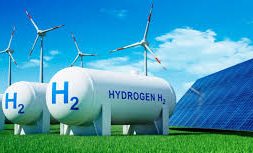
Renewables For Growing Food And For Growing The Economy
Agriculture and related agri-food activities are at the heart of the rural economy, with a large percentage of households employed in harvesting, agro-processing, transporting and selling produce. Yet, rural communities often struggle with the lack of access and affordability of resources, and they can be limited to producing low-quality goods with little variety. This traps rural economies in poverty.
Affordable energy services were recognized as essential ingredients of economic development in the Millennium Development Goals, including the eradication of extreme poverty. More recently, access to affordable, reliable, sustainable and modern energy has been included as one of the Sustainable Development Goals. Increasing access to cost-effective and environmentally sustainable energy services can have a broader development impact through better livelihoods, improved health, gender equality and enhanced education..
Released this weekend at the International Off-grid Renewable Energy Conference and Exhibition, IRENA’s first interactive digital publication, Renewable Energy Benefits: Decentralised Solutions in the Agri-food Chain, highlights the socio-economic benefits of using decentralised renewable energy to deliver energy for activities in the agri-food chain in rural areas.
Billions of people are employed in the agri-food chain, and many of them live in poverty. By adopting renewable solutions in the chain, the report argues that we can improve the environment, food production, energy access, and combat poverty.
The agri-food chain is the range of activities needed for agricultural products to be delivered as a final good to consumers. That includes production and processing of raw food products into consumer products for the market. The report explores the ways in which renewables can play a role in the agri-food chain — from using solar water pumps to irrigate fields, to the use of renewable mini-grids to keep food refrigerated in remote areas.
Growing food and incomes
In June IRENA released its report on Solar Pumping for Irrigation: Improving livelihoods and sustainability, highlighting how solar powered water pumps had become cost competitive with diesel powered pumps. Decentralised Solutions in the Agri-food Chain continues to highlight that point and raises the example of the Indian state of Rajasthan, where the deployment of 4,000 solar pumps enabled 2.4 million litres of diesel fuel to be saved, and consequently, USD 350,000 in annual government diesel subsidies.
In the new report, IRENA also describes how incomes have directly increased through the installation of solar pumps. In Zimbabwe, a study showed that household incomes increased by 286% for the very poor, 173% for the poor and 47% for middle-income groups after solar pumps were installed.
But renewable options extend beyond just solar pumps — watermills, biogas digesters, solar cookers and dryers, and wind mills, are all options for streamlining primary food production and post-harvest activities.
Lasting produce and benefits
Globally, about a third of food produced is wasted, and a lot of that can be attributed to poor energy access. Solar dryers or low-cost evaporation cooling technology, can help preserve food and provide options for further economic development. In the report, IRENA highlights how solar-dried banana chips in Thailand sell for a higher price than fire dried ones, and has resulted in an additional USD 1.5 million per year being generated for the country’s 9,600 tonnes of dried bananas.
Decentralised renewable energy technologies can provide health benefits too; better food preservation can prevent malnutrition and food contamination, while not burning any fuel reduces indoor pollution. Environmentally, decentralised renewable solutions can also reduce greenhouse gas emissions, reduce deforestation, and improve waste management.











